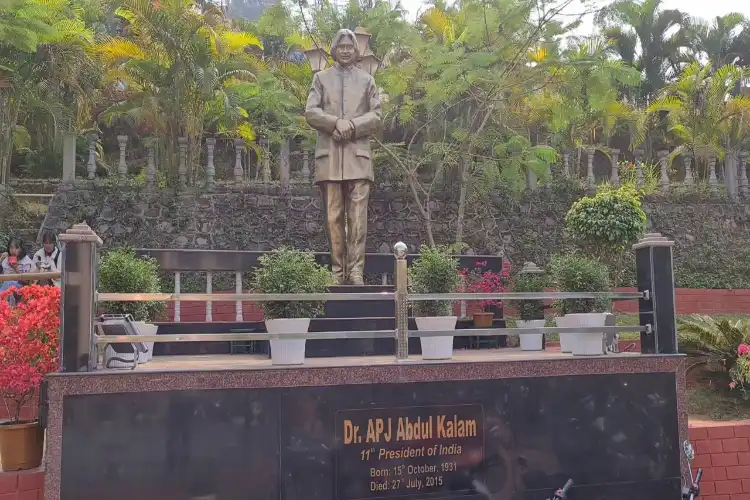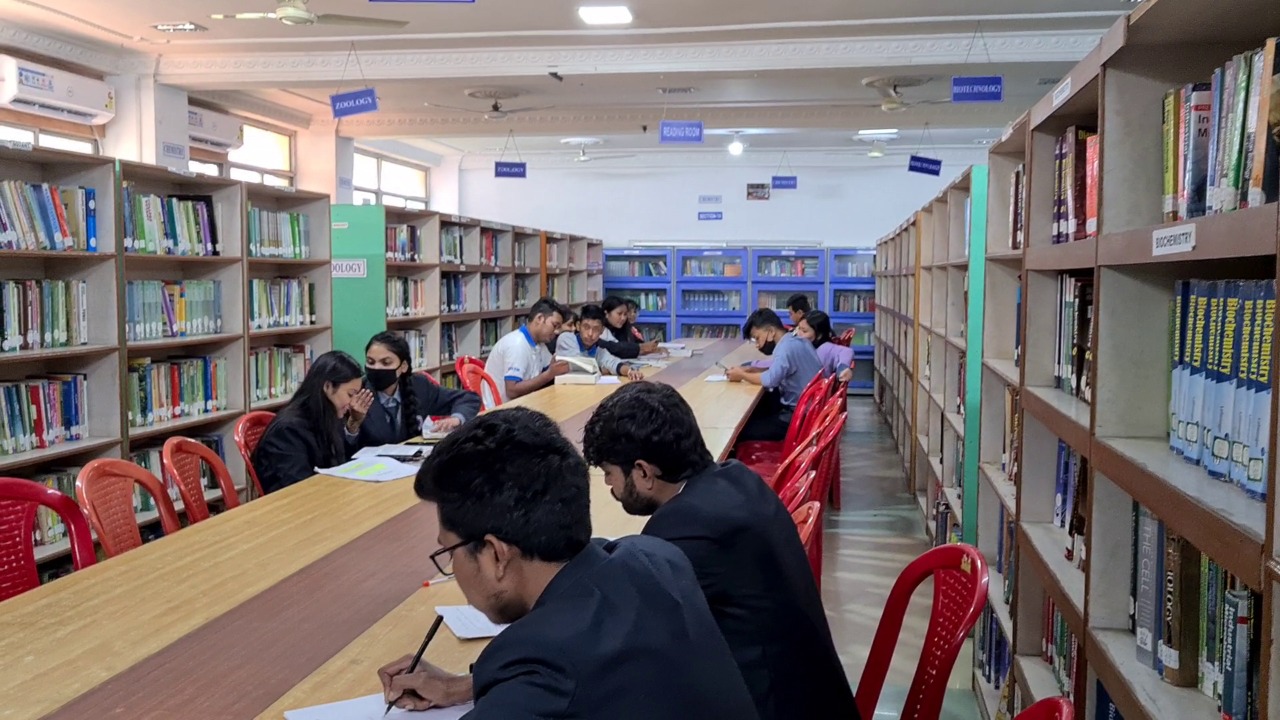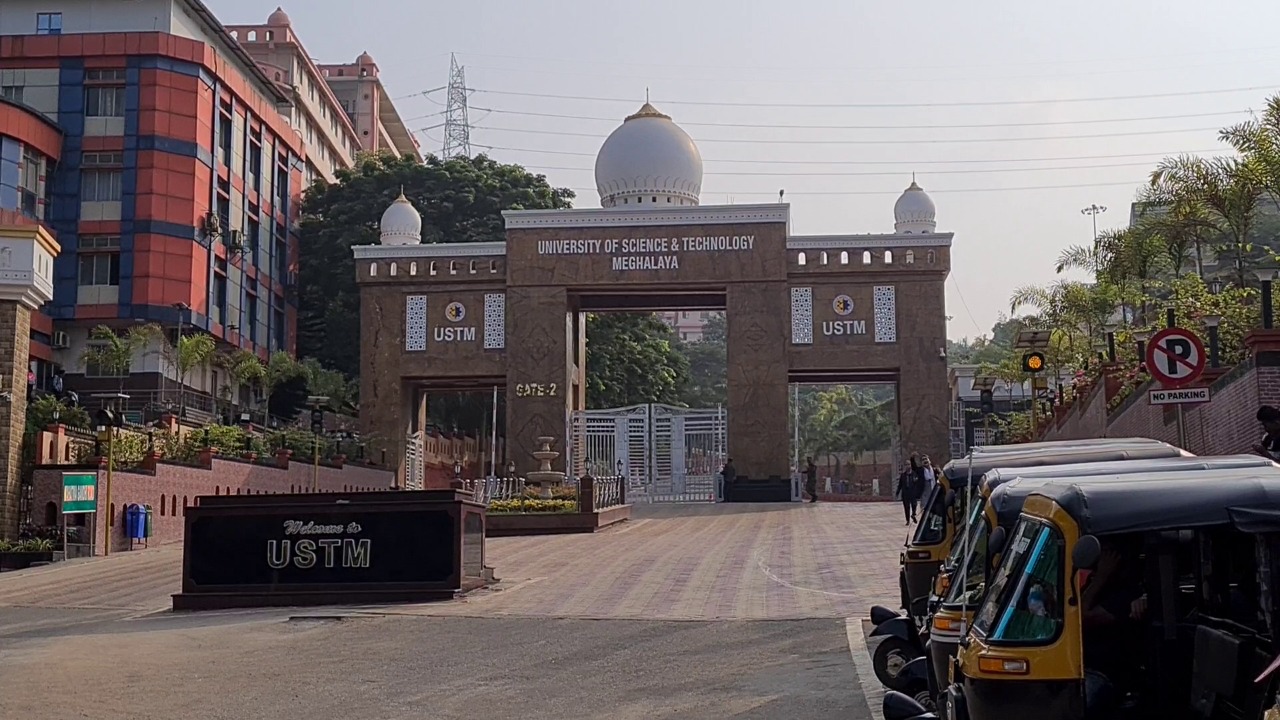
Imtiaz Ahmed/Guwahati
At the turn of the century, an Aligarh Muslim University (AMU) Computer Science graduate arrived in Guwahati from his native Karimganj district, in Assam’s southern part to set up an educational institute.However, to his utter disappointment, Mahbubul Hoque found that Guwahati was not ready to “accept” him. A lesser man might have given up but not Hoque.
“I had to struggle really hard to find an accommodation or set up an information technology institute. Nobody was willing to give me a house on rent even to stay. Fortunately, I could finally manage a small house in the Dispur area a year later where we set up an IT College affiliated to the Sikkim Manipal University followed by the ERD (Education Research and Development) Foundation,” 48-year-old Hoque told Awaz-the Voice.
It was not easy to run the institution because the Assam government was reluctant to give them the necessary permission. “We also approached the government for permission to set up a full-fledged IT institute in a plot of land we purchased in Guwahati. The government gave us a cold shoulder once again,” he said about his early days.
 Former President APJ Abdul Kalam's statute in the USTM campus
Former President APJ Abdul Kalam's statute in the USTM campus
Then he approached the Meghalaya government and set up the Regional Institute of Science and Technology (RIST), affiliated to the North-Eastern Hill University, in Ri Bhoi district of the neighbouring state. The institute became an instant success.
When Hoque requested the Meghalaya government for a suitable plot of land to purchase and set up a permanent campus of RIST, the then Meghalaya governor RS Mooshahary suggested that he should go for a university and allotted 10 acres of land on Kiling Road in Ri Bhoi district.
“We bought the plot paying Rs 38 lakh to the Meghalaya government,” he said.
Although the Meghalaya government accorded permission for the university in 2008, a lack of funds delayed its functioning till 2011.
 Maulana Azad Library at USTM
Maulana Azad Library at USTM
Hoque is presently the chancellor of the University of Science and Technology Meghalaya (USTM) that he set up with active support of Mooshahary and the then education minister of Meghalaya, Manas Chaudhuri.
Spread over a sprawling campus on a hilltop near Guwahati, USTM is today one of the leading private universities of the Northeast imparting education in the fields of engineering, science and technology, arts, pharmacology and is also ready to set up Meghalaya’s first ever medical college.
It has recently bagged the National Assessment and Accreditation Council (NAAC) Grade A certification for its infrastructure as well as quality education and research work.
“We are a young institution compared to others. The NAAC Grade A certification is definitely going to motivate us all the more to take the university to the next level. We were expecting it last year itself. However, the pandemic situation delayed everything,” Hoque said, adding that it was collective effort of the 900 employees and thousands of students enrolled with the institution.
“We are now determined to make the institution an exemplary one in the country so that we can attract global students and researchers. It is quite disappointing that students from neighbouring countries fly to Delhi or Bengaluru etc. to study in lesser-known institutions spending much more than what they can get here by spending much less.
It is also partly due to lack of initiatives on the part of our governments who look for only investment from the conventional business sector and overlook education and other such potential foreign revenue earning sectors,” Hoque added.
 The USTM campus entrance
The USTM campus entranceHe also acknowledged that insurgency in some places in the Northeast could also be a deterrent for the inability to attract foreign students. “But again, this is the duty of the powers that be to project the right picture of the region to the rest of the world. It’s no longer an insurgency prone region and is a safer compared some other parts of the country,” he said.
Also Read: Rickshaw puller who set up 9 schools in Assam
USTM, that has some of the quality sports infrastructure, including horse riding and equestrian club, despite the hilly terrains, is presently developing an international hostel to accommodate overseas students. Embarking on a plan to make the campus self-sustainable, Hoque said the university campus uses mostly solar power and has started organic farming. “We had to face much hardship during the lockdowns for vegetables and livestock. So, we have initiated steps to make the campus self-sustainable. We plan to ensure that we can serve at least 250 ml milk from our dairy farm to every student by next year. Vegetables grown in the campus are consumed in the hostels as well as our canteen,” he said.
Run only with funds raised as fees from students, the university has also been involved in philanthropic activities as well as community service. “We pay over Rs 1.35 crore as salaries to our employees, thanks to senior faculties who do not bargain for salaries. Some of the senior faculties who have retired from other universities, render service even without salary. They prefer to work with our university because the infrastructure is favourable for research activities etc,” Hoque said.
Despite limited resources, the university has been providing free education to meritorious economically backward students. “We have admitted about 300 students free of cost this academic year. All they have to pay for is their hostel dues. Besides, we have scholarships for the poor students, thanks to some of our friends abroad who contribute regularly towards it,” he said.
About the setting up of the proposed medical college, Hoque said: “We are ready with a plot of land within the campus. But the pandemic situation has been an impediment as resources have become a constraint. I am looking for interested investors, particularly doctors, to start it as a joint venture.”
Asked if he regretted having been denied an opportunity to set up the university in Assam’s land, Hoque said: “I’m blessed with a quality of forgetting the negatives. My purpose is served whether in Assam or Meghalaya. I wanted to serve the people of Assam with the project and that I am serving from here too. Majority of employees (90 per cent) as well as students (65 per cent) from Assam followed by Meghalaya, Arunachal Pradesh, Nagaland, Manipur and other states. I am grateful to the Meghalaya government for the unstinted support all along. We are so obliged to the state government that even chief minister Conrad Sangma visited the university as soon as we got the NAAC Grade A.”
